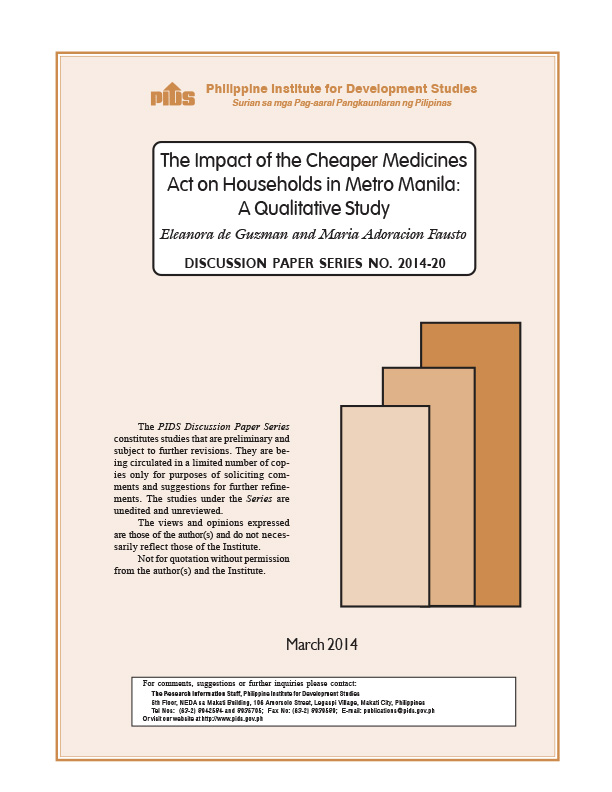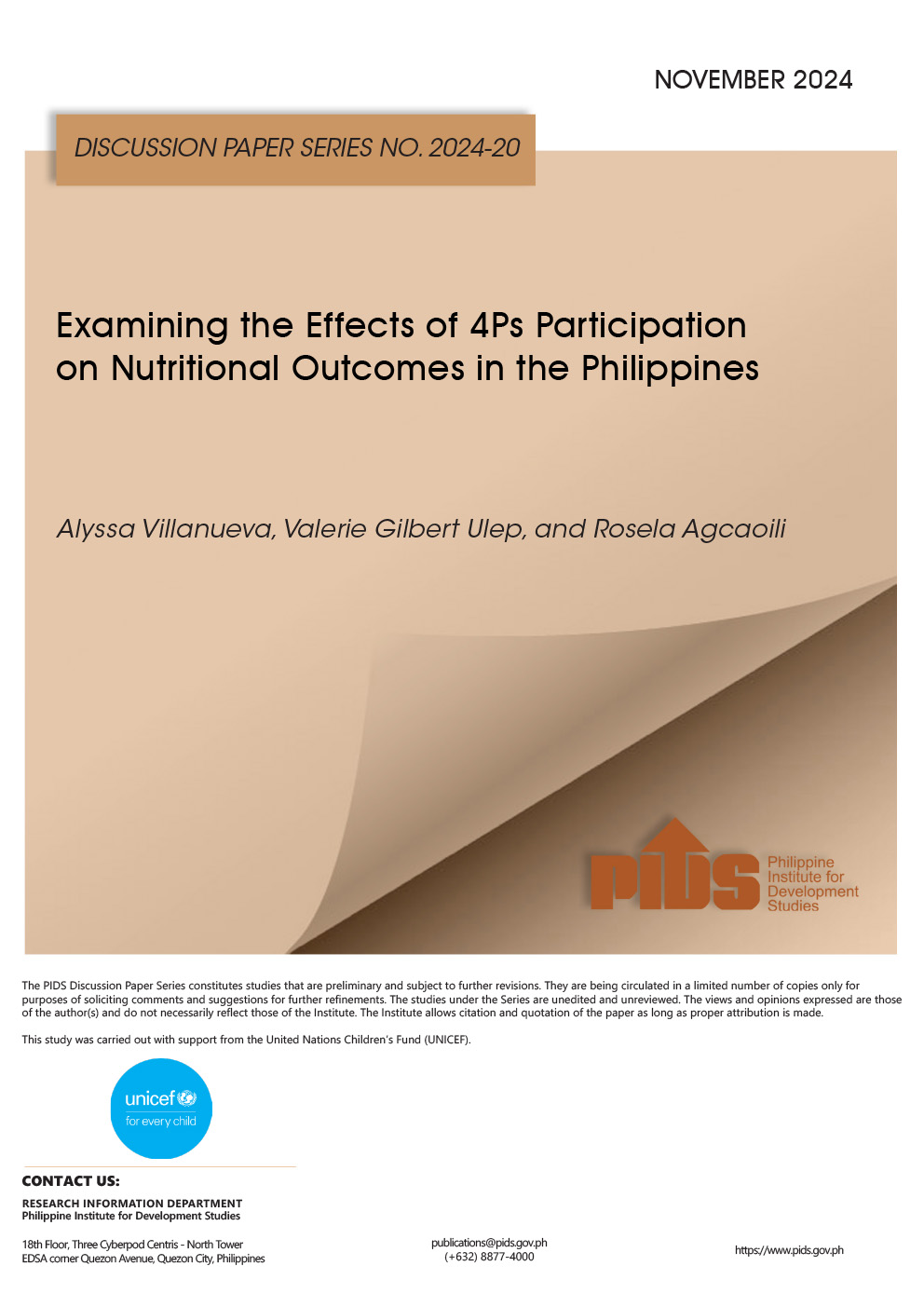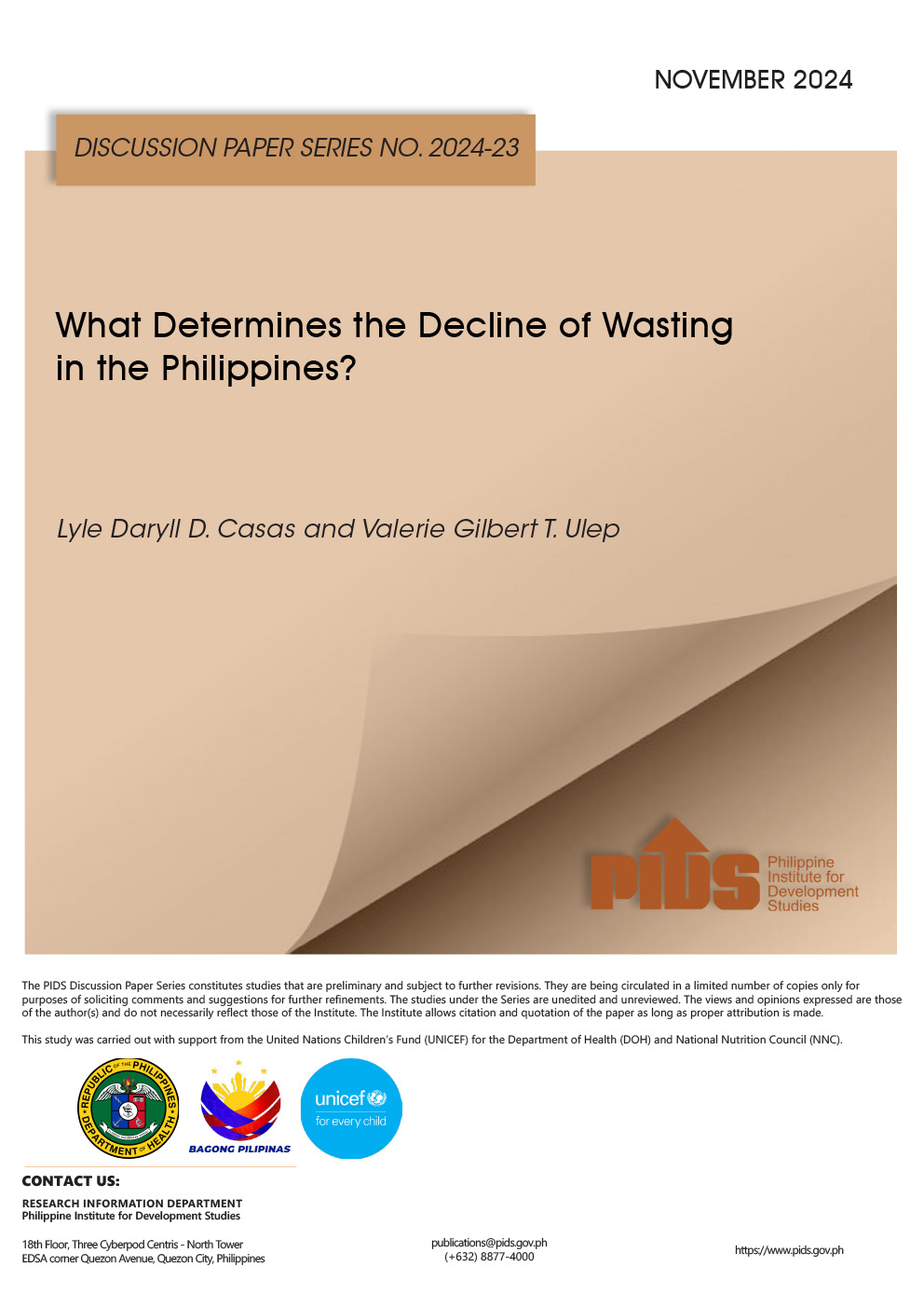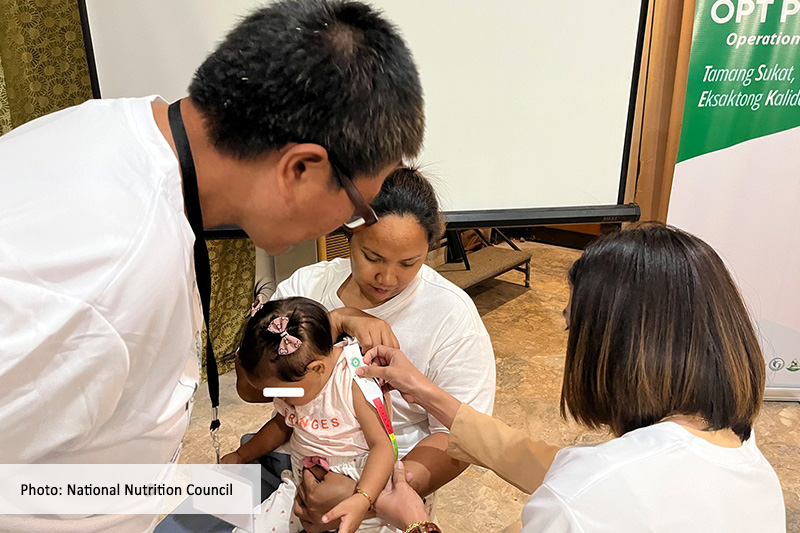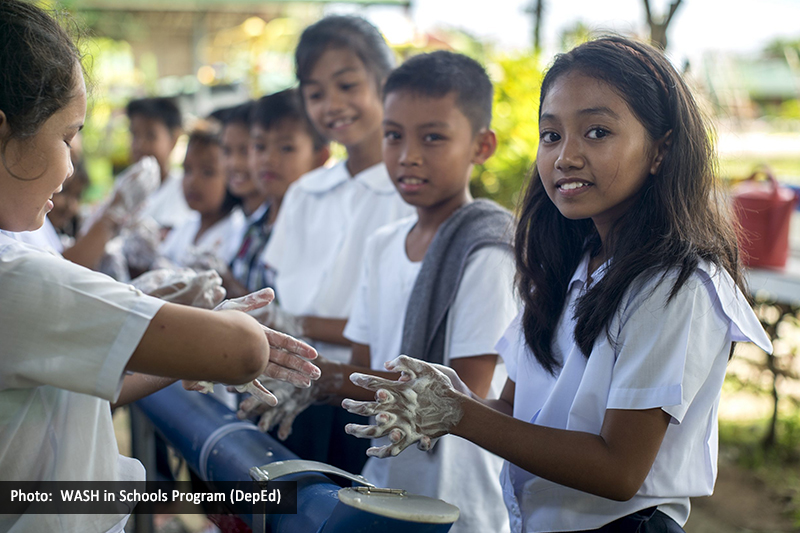This research forms part of the "Health Systems Research Management in the Department of Health (DOH)", a project funded by the DOH and implemented by the Philippine Institute for Development Studies. The study aimed to: determine knowledge, attitudes, and practices related to the Cheaper Medicines Act (CMA) among households from three socioeconomic classes (SECs) - low income (Class DE), middle income (Class C), and high income (Class AB); and assess the impact of the key provisions and implementation of the CMA among these three classes of households. Information from this study would provide insights useful in identifying actions to improve the implementation of the CMA and increase its positive impact on the poorer sections of society.
The main research methodology was focus group discussion (FGD) complemented by a review of related literature. A total of 62 respondents (Rs), all female, were selected from the three SECs based on the Philippine Marketing and Opinion Research Society (MORES) classification and on their being household (HH) decisionmakers on health matters. Nine FGDs were conducted in June 2013 - three from each SEC. All Rs were from Metro Manila since it is the biggest market for any product or service in the country.
Citations
This publication has been cited 4 times
- Cristobal, LC. 2019. DOH lists 120 medicines for price reduction under new scheme. Philippines Lifestyle News.
- The Wallace. 2020. Like it is: No COVID-19 vaccine. The Wallace Business Forum.
- Wallace, Peter. 2018. Health is wealth. Philippine Daily Inquirer.
- Wallace, Peter. 2020. No COVID-19 vaccine. Inquirer.

